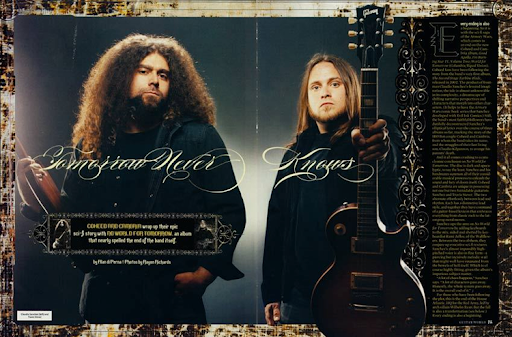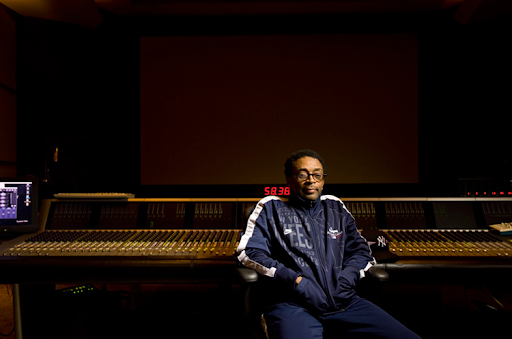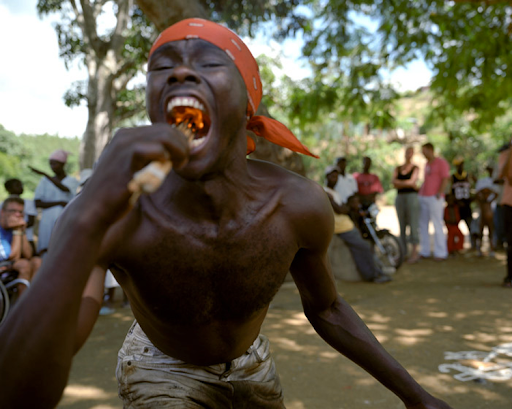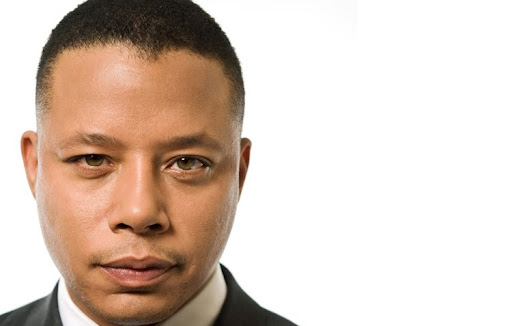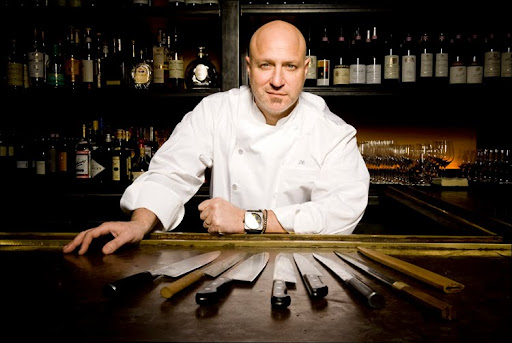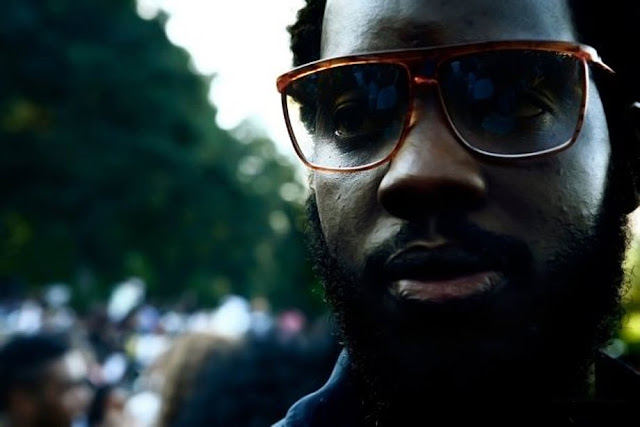Peter Maass on “Crude World: The Violent Twilight of Oil”Author Peter Maass writes about how oil has resulted in devastation around the world in his new book, Crude World: The Violent Twilight of Oil. Maass spent eight years traveling the globe to discover the costs of oil production to the planet. Peter Maass is an award-winning investigative journalist and author and a contributing writer to the New York Times Magazine. He joins us now from Boston. [includes rush transcript]
Guest:
Peter Maass, Peter Maass is an award-winning investigative journalist and author. He is a contributing writer to the New York Times Magazine, and his latest book is called Crude World: The Violent Twilight of Oil.
Rush Transcript
This transcript is available free of charge. However, donations help us provide closed captioning for the deaf and hard of hearing on our TV broadcast. Thank you for your generous contribution.
Donate - $25, $50, $100, More...
AMY GOODMAN: BP’s initial attempt to stop the massive oil spill in the Gulf of Mexico has failed. Over the weekend, the company placed a giant four-story containment box over the spill, but the box kept getting clogged with ice crystals. An estimated 3.5 million gallons of oil have spilled since April 20th.
Well, author Peter Maass writes about how oil has resulted in devastation around the world in his new book, Crude World: The Violent Twilight of Oil. Maass spent eight years traveling the globe to discover the costs of oil production to the planet. He’s an award-winning investigative journalist and author and a contributing writer to the New York Times Magazine. He’s joining us now from Boston.
Welcome to Democracy Now!, Peter Maass. Talk about BP in the global context.
PETER MAASS: Well, BP is, of course, one of the largest shareholder-owned companies in the world, and it’s had actually—even though its slogan it tried to reengineer to meaning “Beyond Petroleum,” it’s actually had one of the more checkered, in recent history, records, particularly on the environment. There was a very large explosion at one of its refineries in Texas City about a couple years ago. It also has spilled a fair amount of oil in Alaska. And so, even though it’s tried to foment this image of being the greenest of oil companies, actually it’s had a significantly more difficult, troubled career in terms of environmental problems than some of the other companies that we know even as well or better, such as Exxon and Chevron.
AMY GOODMAN: And what about this latest attempt to cap the explosion, the leak, that has failed on the part of BP?
PETER MAASS: Well, this is somewhat a reflection of the new territory, quite literally, that BP and other oil companies are in these days, because the kind of era of what’s called easy oil—that is, oil that’s close to the surface, that’s on the ground rather than under the water—that era is pretty much over. And so all these oil companies, particularly the Western shareholder ones that don’t kind of own reserves themselves, because they’re not state-owned companies, they don’t have kind of, you know, natural territory that is theirs, they have to go into places that they didn’t use to go into. They have to go far offshore. They have to go off into far reaches of Siberia or the Sakhalin Peninsula or whatever. They have to go very deep, very far into new areas using new technologies that really haven’t kind of been proven, because these are the first times that they’ve been used.
And so, when you have a big accident, you’re basically dealing with it for the first time in an incredibly challenging environment out there in the Gulf of Mexico at a depth of 5,000 feet. So each time you have an accident, you have to try a solution for the first time. And so, in this case, for example, the solution isn’t working. They’re going to keep trying to work on it. But it just shows kind of how much they have to deal with in the way of new challenges and the dangers, therefore, that exist when you have to go into new terrains—deep water, for example—and get oil, because the easy oil is pretty much gone, as far as these companies are concerned.
AMY GOODMAN: When President Obama announced the giving out of permits for offshore oil drilling, where he got a tremendous amount of criticism from environmentalists and others who live along the coast where this drilling would take place, he said that new technology, you know, prevents the kind of spills that, well, we saw a few weeks after he made this announcement. Now the Center for Biological Diversity reports that the Obama administration is continuing to exempt new offshore drilling operations from environmental review despite the Gulf disaster. Since the disaster began on April 20th, the Department of Interior’s Minerals Management Service has approved twenty-seven new offshore drilling permits. All but one of the projects were granted the same environmental review exemption used to approve BP drilling. Your response, Peter Maass?
PETER MAASS: Well, you know, this, in a way, isn’t too surprising, because in so many areas when oil extraction is concerned, the Obama administration really is not much different from the Bush administration, which wasn’t that much different from the administrations that preceded it, because the first priority is to get oil, to get control of it, to have it at reasonable prices. And this is something that crosses over Democratic and Republican administrations. So one shouldn’t really be that surprised that the Obama administration isn’t terribly different than the Bush administration. I mean, there are dictators all over the world who possess a lot of oil whom the Bush administration dealt quite closely with, and the Bush administration was criticized rightly for that, whether it’s Teodoro Obiang in Equatorial Guinea, whether it’s Nursultan Nazarbayev in Kazakhstan. But you have a new administration, and you have different rhetoric, but you have actually the same policies in place.
So, you know, the lack of a clear break between the Obama administration and the Bush administration, though there are improvements, isn’t terribly surprising, because when you kind of get down to it, American consumers do want to have their gasoline. They want to have their gasoline at the cheapest price possible. And so for, you know, administration after administration, it has meant getting the oil wherever it is. And there was a brief moment, of course—we’re all kind of somewhat famously aware of it—when Jimmy Carter put solar panels up on the White House roof and was going to try to direct the country into a somewhat different energy future, but of course that all changed. Reagan became president, the solar panels were taken down, and thirty years later we find ourselves at this position where we still—when I say “we,” I mean American consumers—still want their gasoline, still want their cars, and aren’t ready to make the investments that are necessary, the changes that are necessary. And so, in some ways, the Obama administration certainly isn’t leading us to a new direction, but neither are they really being encouraged to lead us in a new direction by a kind of large population in America.
AMY GOODMAN: You begin your book Crude World with J. Paul Getty’s quote, “The meek shall inherit the Earth, but not the mineral rights.” Peter Maass?
PETER MAASS: This is something that, you know, kind of in one way, it seems obvious; in another way, not. So we have this idea that countries that have oil, lots of oil, are lucky, kind of Beverly Hillbillies style. If you find oil in your backyard, you’re rich, and everything goes quite well. The reason I put that quote at the beginning of my book is because what happens, or what tends to happen, in most countries that have a lot of oil is that they don’t become rich because of it. Some people become rich, but not the population at large. They don’t tend to become more democratic as a result of it. In fact, they tend to become more authoritarian as a result of it. And they also tend to suffer environmentally as a result of it. The United States, as we’re seeing now in the Gulf of Mexico, is having a new experience with the environmental costs of extraction.
So the kind of bottom line here is that the people who should benefit from oil, for example, in the Niger Delta in Nigeria, which is where most of Nigeria’s oil is located and where I went for this book, the people who actually live atop the oil, who should be the ones to benefit most directly, actually are the ones who suffer the most, because there’s an environmental disaster in the Niger Delta, which kind of dwarfs what Louisiana is now facing. They’re also kind of facing deprivation of political rights in the Niger Delta. There’s a war going on in the Niger Delta over who controls the oil itself. And so, the upshot is that rather than becoming richer, individuals tend to become poorer in these countries. When I say “individuals,” I’m just specifically referring to those who don’t usually have access to political power.
AMY GOODMAN: We’re going to break, then come back to this discussion, also hear about a court case involving Chevron and a documentary filmmaker. Chevron has just won the right to take the outtakes of his film. Peter Maass, we want you to stay with us and also weigh in on this. Peter Maass is an award-winning investigative journalist and author. His latest book is called Crude World: The Violent Twilight of Oil. This is Democracy Now! Back in a minute.
[break]
AMY GOODMAN: We turn now to the latest twist in the multi-billion-dollar lawsuit against the oil giant Chevron. Last week a federal court in Manhattan ordered a documentary filmmaker to hand over to Chevron hundreds of hours of footage. Joseph Berlinger’s award-winning film, Crude: The Real Price of Oil, chronicles the struggle of indigenous Ecuadorians against ChevronTexaco’s oil contamination of their land. It focuses on the seventeen-year legal battle between Chevron and 30,000 Ecuadorians who say their land, rivers, wells, livestock and bodies were poisoned by decades of reckless oil drilling in the rainforest. Chevron has sought Berlinger’s outtakes to help defend itself against an Ecuadorian lawsuit seeking $27 billion in environmental damages.
On Thursday, Judge Lewis Kaplan of the district court in Manhattan ruled in favor of Chevron’s request to view the 600 hours of outtakes from Crude. The decision has raised concerns over both the outcome of the Ecuadorian lawsuit as well as the future of protections and privileges granted to journalists.
Chevron spokesman Kent Robertson welcomed the ruling and told the press that Berlinger might have unwittingly captured misconduct by the court in Ecuador and the plaintiff’s legal team. He added, quote, “Given the level of opposition to Chevron gaining access to the outtakes, we have to believe there is…damning content that was left on the cutting room floor. It’s in the interest of justice that these events are known more broadly.” But the director and producer of Crude, Joe Berlinger, says there is no smoking gun and has vowed to appeal the ruling.
I’m joined now by Joe Berlinger.
Joe, welcome to Democracy Now! Explain your response to this decision against you.
JOE BERLINGER: Hey there, Amy. How are you? It’s actually Berlinger, just so you know.
You know, the idea that there must be some smoking gun as why we’re opposing it is just a complete disregard for any belief in the First Amendment. You know, I am a journalist. I am covered by a journalist privilege, we hope. And there’s a certain—and unfortunately federal law does allow for the piercing of journalist privilege, but only when you show relevance and, you know, specific footage. This is a broad request to turn over my entire files. It’d be like inviting someone to rummage through your underwear drawer to find something incriminating. You know, we are shocked by the judge’s decision, at the broadness of the request. You know, anything that’s in the film, you know, there’s tremendous—I believe Crude shows both sides of the situation, and there’s a lot in the film that they could have used to go on a more narrow request, but they’ve not done that. They’ve simply asked for the entire footage to be turned over to go on a fishing expedition.
AMY GOODMAN: I want to go to some of the clips of your film, this excerpt featuring the two Chevron fighting lawyers you profile, American attorney Steven Danziger and Ecuadorian lawyer Pablo Fajardo.
PABLO FAJARDO: [translated] When I began working on this case, I didn’t have any professional experience litigating cases. I have never felt inferior to any of the Texaco lawyers, because when I say something, they have to think a thousand times to come up with a lie in order to counter my truth. They have to think much harder than me. I know I always tell the truth, and if I have to die for it, then I will, with pleasure.
STEVEN DANZIGER: This is about fighting hundreds of years of history, you know, in Latin America, and it’s about fighting one of the most powerful companies in the world, with people who have literally no resources and are some of the most marginalized people on earth. So, you know, it’s a completely unequal battle. The fact we’re in the game is a huge victory. You know, the fact we’re having a trial is a miracle. It’s historic. This is becoming, like we always envisioned, a true national issue. It’s about a nation that got completely screwed over by an American company and about a continent, to take it out a little further, that has really never been treated with a whole lot of respect by American corporate power. And it’s always been seen—from United Fruit in Guatemala and the CIA doing a coup there in 1954, you know, to Nicaragua with Somoza supported by the Marines, you know, for several decades, it’s always been a place that’s been seen sort of as the backyard of the United States. And like, it’s changing now, you know, and we’re riding that wave of change.
PABLO FAJARDO: [translated] We don’t defend Petroecuador. They’ve done plenty of bad things. We hope to have another trial against Petroecuador so that they are held accountable for their actions. What we have to do is—each one is responsible for themselves. Texaco did terrible things. Texaco has to answer for itself. Petroecuador does things they have to answer. What they want is to say everything is Petro’s fault, so that they are free from responsibility. We will not allow that.
AMY GOODMAN: Excerpts from the film Crude, ending on the Ecuadorian attorney Pablo Fajardo responding to Chevron’s attempts to blame Petroecuador for the pollution. Explain this further.
JOE BERLINGER: Well, you know, this is a long case that’s been going on for seventeen years. Basically, Texaco is accused, from the late ’60s to the early ’90s, when they left the country, of, you know, massive environmental damage. The lawsuit was filed in ’93 in a New York court. After nine years of struggling in the US, the case was finally thrown out and remanded to Ecuador. So the case was refiled and finally got on its feet in 2003, 2004, around the time I started my film. One of the things the plaintiffs allege is that the system of oil production that was created by Texaco was then turned over to Petroecuador, and so any damage that Petroecuador has done is also—is also Texaco’s fault. In the meantime, Texaco and Chevron merged, and so Chevron now has inherited this lawsuit. But because it’s taken so long for the lawsuit to get off the ground, it’s easy for Chevron to now point the finger at Petroecuador and say all the pollution is Petroecuador’s, but in fact, according to the plaintiffs, this lawsuit was filed back in ’93.
AMY GOODMAN: This is another clip from the film Crude. Here, a resident of San Carlos, Ecuador, Maria Garofalo, describes how the contamination in the water has impacted her family’s ability to survive.
MARIA GAROFALO: [translated] The water is contaminated. The air is contaminated. That’s why I can’t have my daughter here together with the family. For me, it’s quite sad. First, I had the problem, and now my daughter, who’s so young to have a disease such as cancer. We are people who don’t have the means to pay for our daughter’s treatment. My daughter is eighteen years old. For each treatment that I have and each treatment my daughter has, I need $500. Where am I going to get $500 every fifteen to twenty days for every appointment she has?
I bought chickens to raise in hopes of making some money to pay for my daughter’s treatment. Now we don’t have anything because everything has just died. All the animals are dying from contamination because they run to the stream and drink the water. The animals drink that water and die, and there is nothing you can do about it. That’s why we say there is no life here for the animals, and it’s even worse for us humans.
SARA McMILLEN: Chevron takes those kinds of allegations very seriously, so that was one of my mandates, was to investigate the health allegations. So we’ve hired external epidemiologists, as well as our internal epidemiologists, health risk assessors, to look at all of the data to investigate this. And what we found is that there’s absolutely no evidence that there’s an increase in cancer death rate.
AMY GOODMAN: That excerpt from the film Crude, ending with Chevron chief environmental scientist Sara McMillen. Your response to that, Joe Berlinger?
JOE BERLINGER: Well, you know, I mean, the style of the film is to show both sides, and the film is actually rather neutral with regard to the lawsuit. Obviously, I am extremely sympathetic to the plight of the indigenous people there. The people in that region have suffered tremendous environmental damage and tremendous health effects. And this lawsuit has been characterized by an extremely lengthy process. Chevron has flooded the court with paper. They are the ones who wanted to try this thing in Ecuador to get it out of the US court system, and at the time they testified as to the fairness and efficiency of the Ecuadorian court system. Now that it’s not going their way, they are claiming that the process is unfair, not transparent and has become politicized. I mean, this is a football that has been tossed back and forth for, you know, two generations, and there’s no end in sight. And I think one of the themes of the film, actually, is that, you know, the inadequacy of the lawsuit mechanism to address these kinds of large-scale environmental and humanitarian crises. You know, by the time this thing gets resolved, three generations of people will be suffering the ill effects of oil production. And there’s got to be, you know, just like they’re trying to, you know, clean up the Gulf, and just like when, in Haiti, people have done everything possible to try to bring some relief, you know, we shouldn’t just rely on a lawsuit to assume that these things will get cleaned up. There is misery down there that needs to be addressed.
AMY GOODMAN: Peter Maass, can you put what happened with Chevron and Joe Berlinger and his film Crude into the broader context of the power of the oil companies? Did this ruling surprise you, that this filmmaker has to hand over all of his outtakes to Chevron?
PETER MAASS: The ruling surprised me, as I think it surprised most journalists, because one attempts to keep the shield law in place in terms of protections of journalists, and, you know, this is something that is kind of a constant problem, as well. A reporter for the New York Times was sued, or I should say the courts came at him a couple weeks ago, James Risen, to get him to reveal sources involved with some of his reporting. So this is a constant problem that happens, and it happens to have struck Joe Berlinger, a documentarian, in this case. And hopefully it will come out on his side. I expect so.
But, you know, overall, the thing that I kind of am focusing on, in a sense, is more globally in the sense of these oil companies and the problem of oil. It’s not just the problems of the past, which need to be atoned for, in terms of what happened in Ecuador while Texaco was there, but you have the same kind of problems happening now, not just in Ecuador, but in other countries. And it’s not just BP, it’s not just Exxon, that is involved in oil pollution. There are also state-owned companies, and it’s happening drip by drip every day in almost every country where oil is extracted. So if we just focus on what’s happening in the Gulf of Mexico—and we need to focus on that—that’s not enough. We need to also focus on the fact that there is oil pollution happening all over the globe, in some countries worse than others. And if we just, every thirty years, when it happens to wash up on our shores, pay attention, then we’re never going to kind of come to the point that we need to come at, which is understanding that we have to get off of oil, because it is really damaging the environment and the countries and the cultures that provide it to us.
AMY GOODMAN: Peter Maass, finally, we only have thirty seconds, but you write a good deal about Saudi Arabia and oil there. Could you summarize?
PETER MAASS: Well, thirty seconds is not a lot to summarize anything about Saudi Arabia, but certainly one of the key problems with Saudi Arabia is in terms of the amounts of money that have gone into that country that have been used, as a result, for purposes, political purposes, that have not terribly worked out well for the rest of the world, in terms of funding of violent jihadi forces.
But also, there’s another issue, which is kind of unrelated to that, which is very troubling in Saudi Arabia, which is how much oil does Saudi Arabia really have? I mean, there’s this whole kind of issue of peak oil. Are we there yet? Are we beyond peak oil? And Saudi Arabia, as a dictatorial country, does not disclose how much oil it has, so there’s a big question over really kind of like, well, how much more in the way of supplies are there. And the people who have it, in the case of Saudi Arabia, about a quarter of the world’s reserves, aren’t letting anybody else know. So there’s kind of two very serious unrelated problems that come together in Saudi Arabia.
AMY GOODMAN: I want to thank you very much for being with us, Peter Maass, award-winning investigative journalist and author. His latest book is called Crude World: The Violent Twilight of Oil. And Joe Berlinger, award-winning filmmaker, journalist, photographer, director of Crude: The Real Price of Oil.

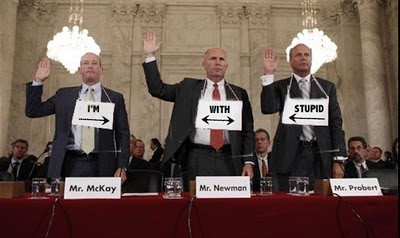
.jpg)

 Port-au-Prince – Almost four months have passed since the earthquake, but the Haitian people can’t get the rubble out of sight. This keeps the disaster present every day in their lives, from their streets to the deepest part of their hearts; and the effects are getting worse. People feel like they are slowly losing the opportunity to rebuild their country like they hoped it would be, right after the disaster.
Port-au-Prince – Almost four months have passed since the earthquake, but the Haitian people can’t get the rubble out of sight. This keeps the disaster present every day in their lives, from their streets to the deepest part of their hearts; and the effects are getting worse. People feel like they are slowly losing the opportunity to rebuild their country like they hoped it would be, right after the disaster.















